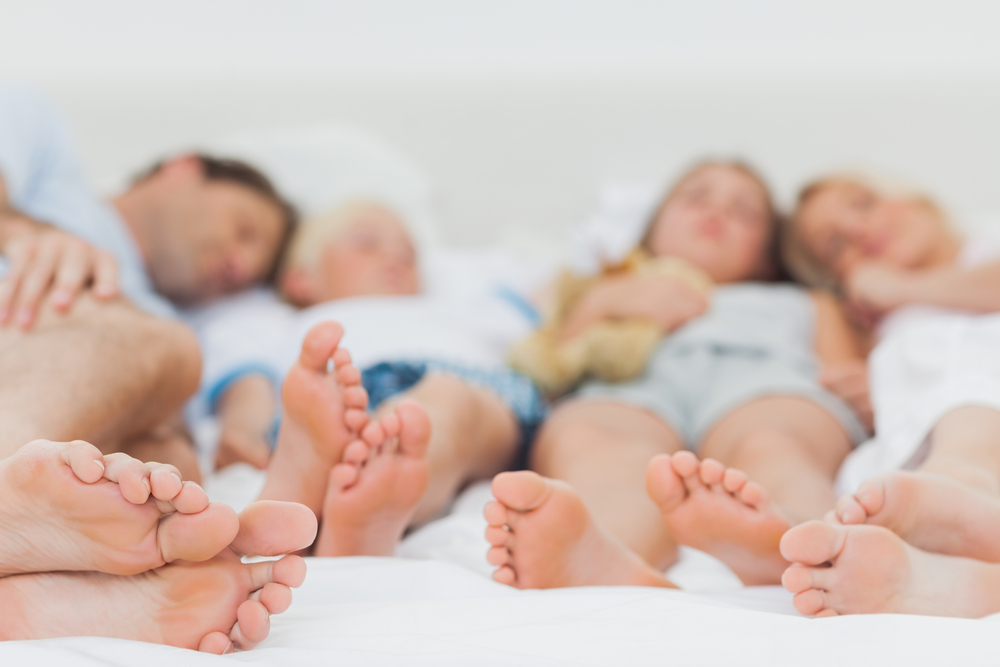Sleep Myths Debunked: 6
It’s no wonder there are so many myths about sleep.
Modern sleep research only really began in the middle of the 20th century, with the milestone discovery of REM sleep in the 1950s.
Before that, sleep was widely regarded as a ‘passive process’ and hence, not of great interest in terms of scientific inquiry.
When it comes to real ‘facts’ about sleep, this relative lack of empirical evidence, has, over the years led to a disproportionate amount of homespun advice, folk wisdom and old-wive’s tales.
There are many mysteries of sleep yet to be solved. The good news is, in the last few decades, science has been able to separate a lot of the fiction from fiction.
Over 11 days, we are exploring some of the scientific research behind 33 of the most commonly held myths and misconceptions about sleep.
16: Energy drinks give you wings
Whether it’s office workers on the early morning train or students trying to get through the afternoon lectures, energy drinks are becoming more and more ubiquitous these days.
 There are now over 100 types of these beverages available, all claiming to be the perfect solution for drowsiness and a general lack of energy.
There are now over 100 types of these beverages available, all claiming to be the perfect solution for drowsiness and a general lack of energy.
But multi-million advertising campaigns cannot hide the fact that the stimulant effect these drinks produce is largely down to two ingredients, caffeine and sugar.
Whilst scientific studies have shown that certain energy drinks can indeed improve mental and physical performance, there is some doubt as to whether the effect is any different to consuming a similar amount of coffee.
It is also largely ignored that the high sugar content in some of these drinks causes a stimulating “high” that is eventually followed by a “crash.” Additionally, research into taurine, one of the ‘magic’ ingredients in Red Bull, has suggested that it could actually function more like a sedative than a stimulant.
17: Eating cheese gives you nightmares
There’s a persistent myth that eating cheese before you go to bed can cause nightmares. It’s likely that that this belief orginated in the famous book by Charles Dickens, “A Christmas Carol”.
The main protagonist, Ebenzer Scrooge is plagued by nightmares, one of which contains a ghost who asks him, “‘Why do you doubt your senses?’. In reponse, Scrooge wittily answers,
“You may be an undigested bit of beef, a blot of mustard, a crumb of cheese, a fragment of underdone potato. There’s more of gravy than of grave about you, whatever you are!”
There is however, another explanation for the myth. People who are taking a certain type of anti-depressant known as MAOI’s, have been known to have very serious, even fatal reactions when eating foods such as aged cheese ,which contains high levels of the compound tyramine.
However, a scientific link between cheese and bad dreams still evades us. James McFarlane of the MedSleep Clinic in Toronto adds”
“I think those old wives’ tales are probably partially true, but they probably relate more to overindulgence or the consumption of foods you’re not used to, which would lead to digestive problems,”
18: To cure drowsy driving, roll the window down and turn the music up
Sleep related driving accidents are an enormous problem around the world. In 2005 a nationwide surveyfound that 60% of Americans said they had driven whilst feeling drowsy.
nationwide surveyfound that 60% of Americans said they had driven whilst feeling drowsy.
The National Highway Traffic Safety Administration conservatively estimates that 100,000 police reported accidents are directly caused by driver fatigue. For such a serious issue, there seems to be a surprising lack of reliable advice on how to prevent accident like these.
A favourite myth is that winding down your window and turning up the music will provide enough stimulus to stop you nodding off. But scientists have found that although a blast of cold air on your face will provide temporary relief from drowsiness, this may last as little as 15 minutes.
Effective remedies to combat driver fatigue, according to the study include napping, consuming coffee and somewhat controversially, nicotine.



